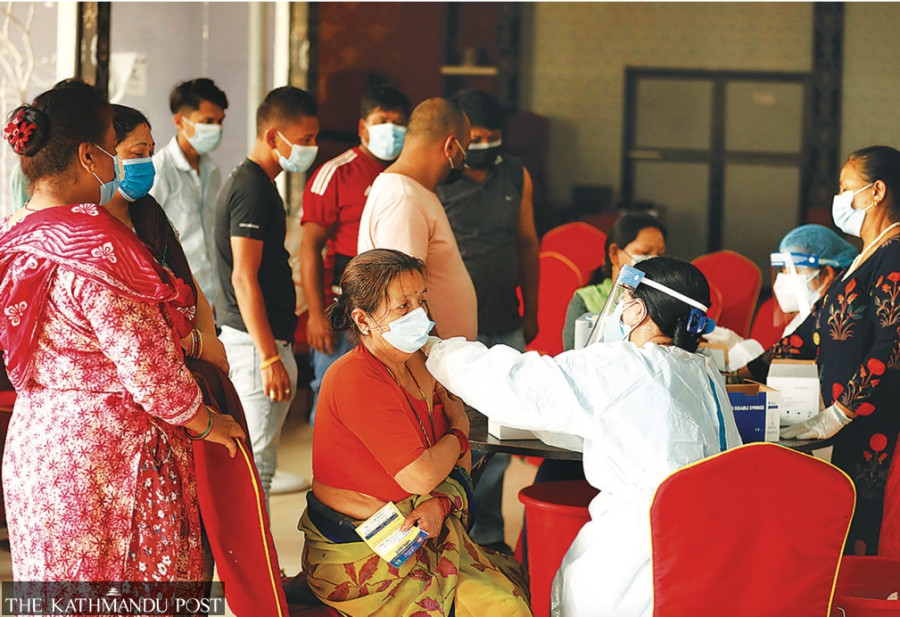Editorial
Public messaging
The government must review its Covid-19 communications strategy.
It was a moment of relief as people aged 65 and above were escorted by their family members to vaccination centres on Monday for their second dose of the Covishield/AstraZeneca Covid-19 vaccine. The vulnerable age group has waited five months with fear and uncertainties about whether the government can procure or receive the vaccines under a grant. The lifesaving doses have finally reached their arms, but only after Bhutan delivered 230,000 doses of the AstraZeneca vaccine under a reciprocity condition and an additional 1.6 million AstraZeneca doses donated by Japan through the vaccine sharing scheme COVAX.
For over 1.4 million senior citizens who had received their first jab in March, their second shots couldn’t have arrived at a better time. More than half of the confirmed 10,093 Covid-19 related deaths as of Sunday have been dominated by the age group 60 and above, followed by the age group 40-59. The availability of vaccines is thus an essential breakthrough amid the recent surge in new infections and deaths following the Health Ministry's warning of more contagious Delta variants driving the third wave of the pandemic. But does the government plan to study the effectiveness of the second dose that has come after such a long gap? Will the antibodies generated by the booster shot offer enough and longer protection to the vulnerable population and prevent breakthrough infections? What about the rest of the people who have received the VeroCell or Janssen vaccine?
The government needs to be answerable. It must keep abreast of the evolving knowledge on vaccine efficacy and coronavirus mutations causing breakthrough infections, and make sense of nations hurrying to offer vaccine cocktails or a third booster shot to the public despite appeals from the World Health Organisation. The leadership needs to embrace its primary and most important responsibility of managing the pandemic, which has already killed thousands of people and flipped the economy. The country urgently needs a full retrospect of the Covid-19 situation, and a practical strategy to steer our way out of the pandemic. A half-hearted attempt like a mask-up campaign, 16 months into the pandemic and over 10,000 deaths later, won’t cut it.
Last week, the government unveiled a plan to procure 42 million Covid-19 vaccines by February next year, targeting to inoculate all eligible citizens above 12 by mid-April. While it’s a positive development, the Deuba administration needs to understand that vaccination alone will not be enough to contain the pandemic. The past few months have seen the world fighting to secure vaccines as scientists study vaccine effectiveness and emerging variants of the coronavirus that may resist vaccines and drive future waves, with one key concern that the vaccinated may spread the virus.
The number of confirmed cases in Nepal has doubled in the last 96 days, and the Health Ministry is currently reporting 2,501 new infections on average each day. Communicating developing insights and crucial information on the pandemic will be essential to reduce infection rates and respond to a prolonged downturn that can have long-lasting socio-economic and unfavourable public health implications if not addressed up front.
The government must take the public into confidence and amplify public messaging beyond a few media platforms where it issues warnings and generic posts calling for Covid-appropriate behaviour. It must review its communications strategy, which has failed to engage the citizens or instil behaviour change.




 25.42°C Kathmandu
25.42°C Kathmandu














